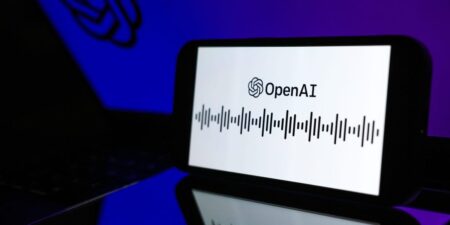The AI revolution could have a huge negative impact on the global job market, IMF Managing Director Kristalina Georgieva said on Monday.
The IMF chief was delivering a speech at the Swiss Institute of International Studies in Zurich, where she talked about the impact AI could have on job seekers.
“We have very little time to get people ready for it, businesses ready for it,” she said. “It could bring tremendous increase in productivity if we manage it well, but it can also lead to more misinformation and, of course, more inequality in our society.”
This isn’t the first time Georgieva has sounded warning calls on AI. In January, she penned a blog post where she predicted that AI “will affect almost 40% of jobs around the world.“
“Roughly half the exposed jobs may benefit from AI integration, enhancing productivity. For the other half, AI applications may execute key tasks currently performed by humans, which could lower labor demand, leading to lower wages and reduced hiring,” Georgieva wrote.
“In the most extreme cases, some of these jobs may disappear,” she continued.
Representatives for IMF did not immediately respond to a request for comment from BI sent outside regular business hours.
Georgieva’s warnings appear to be prescient, considering the new offerings that have been served up by AI upstarts like OpenAI this week.
On Monday, OpenAI announced its latest flagship AI model, GPT-4o. The model, which will be made free to all users, “can reason across audio, vision, and text in real time,” making it suitable for tasks like teaching and translation.
Demos of the software have taken the internet by storm, reigniting concerns that AI could decimate the job market as we know it.
Even OpenAI’s cofounder and CEO, Sam Altman, has regularly warned people of AI’s potential impact on the job market. On May 7, Altman told attendees at a Brookings Institution panel that people were underestimating AI’s impact on the economy.
“GPT- 4 didn’t have this huge detectable impact on the economy, and so people were kind of like, ‘Oh well, we were too worried about that, and that’s not a problem,'” Altman said, referencing the AI model that OpenAI released last year.
“I have a fear that we just won’t take that one seriously enough going forward, and it’s a massive, massive issue,” he continued.
That said, some experts do believe that the AI’s rise will provide job seekers with different opportunities as well.
In November, LinkedIn vice president Annesh Raman said in a podcast interview that while AI will reduce the value of technical skills, it will also make soft skills more important.
“In the 1980s, when Microsoft released Excel, people were petrified and said it would put all of these accountants out of a job. We’ve got more accountants now than in the 1980s,” Simon Lucey, the director of the University of Adelaide’s Australian Institute for Machine Learning, told BI on Tuesday.
Read the full article here
















